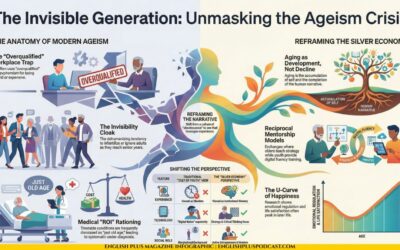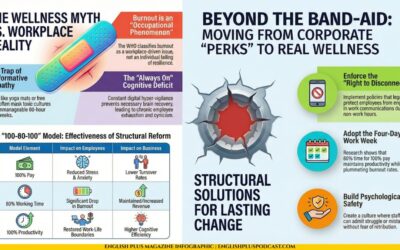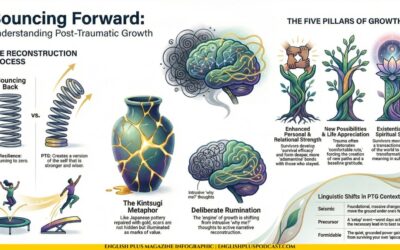The Gist
Cyberbullying and Its Effects on Mental Health
In today’s hyper-connected world, social media platforms and online communication have become a fundamental part of how we interact. While these tools have revolutionized the way we communicate, they have also given rise to new challenges, one of the most harmful being cyberbullying. Cyberbullying refers to the use of digital platforms to harass, threaten, or humiliate someone, often anonymously. Unlike traditional bullying, cyberbullying can follow victims anywhere, making it particularly invasive and harmful.
What is Cyberbullying?
Cyberbullying takes many forms, from sending hurtful messages and spreading false rumors to public shaming or even threatening someone online. It can happen on social media platforms like Instagram, TikTok, or Twitter, through messaging apps, or even in online games. What makes cyberbullying especially damaging is its persistence—the fact that it can happen 24/7, without the physical boundaries that limit traditional bullying. A cruel comment or harmful rumor can spread instantly to a wide audience, amplifying the emotional damage.
In many cases, cyberbullies operate under the protection of anonymity, making it difficult for victims to defend themselves or hold the bully accountable. This lack of face-to-face confrontation can also make the bully feel emboldened, leading to more extreme behavior that they may not engage in otherwise.
The Emotional Toll of Cyberbullying
The effects of cyberbullying on mental health are far-reaching and, in some cases, devastating. Victims often experience anxiety, depression, and low self-esteem as a result of constant harassment. The online world can feel inescapable, leaving victims feeling trapped, powerless, and isolated. Unlike traditional bullying, which may stop once the victim leaves a particular environment (like school), cyberbullying follows its victims everywhere, even into their homes, making it harder to find relief.
One of the most dangerous aspects of cyberbullying is that it can lead to severe mental health issues. Victims may begin to feel hopeless or worthless, which can spiral into more serious conditions like chronic depression or social anxiety disorder. In some extreme cases, prolonged exposure to cyberbullying has been linked to self-harm and suicidal thoughts.
A key factor in understanding why cyberbullying is so damaging lies in the fact that the Internet provides a platform for public humiliation. When a bully shares hurtful content or spreads false information, it reaches a much larger audience, multiplying the emotional impact. The constant fear of being attacked online can lead victims to withdraw from social activities, avoid using technology altogether, or even develop trust issues with friends and family.
The Psychological Effects of Cyberbullying
In addition to the emotional toll, cyberbullying can also affect a victim’s psychological well-being. Research shows that victims often develop symptoms of post-traumatic stress disorder (PTSD), as the bullying triggers ongoing fear and anxiety. They may constantly worry about what might be posted about them next or when the next attack will come. This creates a state of hyper-vigilance, which can significantly impact daily life, concentration, and overall happiness.
Another significant effect is the damage to a person’s self-image. Many victims of cyberbullying report feeling unattractive, unworthy, or inferior due to the constant negative attention. These feelings can be long-lasting, even after the bullying has stopped, as the psychological wounds take time to heal.
Impact on Adolescents and Young Adults
While cyberbullying can affect anyone, adolescents and young adults are particularly vulnerable. This age group is already navigating complex emotional and social challenges, and the added stress of online harassment can be overwhelming. Social media is a big part of their lives, and being ostracized or attacked online can feel like a complete social rejection.
Many teens feel pressure to maintain a certain image or popularity online, and cyberbullying can shatter that, leading to embarrassment, shame, and a deep sense of isolation. This is compounded by the fact that teens often don’t know how to seek help. They might fear further bullying or think that adults won’t understand the depth of the issue.
Addressing Cyberbullying and Supporting Mental Health
Addressing cyberbullying requires a collective effort from individuals, schools, communities, and platforms themselves. On a personal level, building digital literacy and encouraging open conversations about online behavior can help young people navigate the complexities of social media. Recognizing the signs of cyberbullying—such as sudden changes in mood, withdrawing from online activity, or avoiding social situations—can help identify those who may need support.
It’s also important to create a supportive environment for victims to seek help, whether through school counseling, mental health resources, or family support. Many social media platforms now offer tools to report cyberbullying, block users, or limit who can interact with posts, which can empower victims to take control of their online space.
For those experiencing the mental health effects of cyberbullying, therapy and counseling are often crucial steps in healing. Cognitive-behavioral therapy (CBT) has been shown to help individuals manage the anxiety, depression, and self-esteem issues caused by cyberbullying, allowing them to rebuild their confidence and emotional resilience.
Cyberbullying is a serious social issue that deeply impacts mental health, especially in today’s digital world. The emotional and psychological damage it causes can have lasting effects on victims, influencing their self-worth, happiness, and overall mental well-being. By understanding the real-world consequences of online harassment, we can take steps to prevent cyberbullying, support those affected, and create a safer, more compassionate online environment.
Let’s Talk
So, cyberbullying—such a tough topic, isn’t it? What’s wild is how something that doesn’t even involve physical contact can have such a huge impact on someone’s mental health. You’d think that words on a screen wouldn’t cut as deep as face-to-face bullying, but in reality, they often hit even harder. Why? Well, for one thing, the internet doesn’t sleep. That mean-spirited comment or embarrassing meme is just sitting there for everyone to see, 24/7, and that’s enough to mess with anyone’s head. Ever caught yourself thinking about something negative someone posted about you long after it happened? It’s like it haunts you, no matter how much you try to brush it off.
Here’s something I keep thinking about—how easy it is for people to hide behind screens. Do you think cyberbullies would say the same things in person that they do online? Probably not. The anonymity gives them this weird sense of power, like they can throw punches without ever being held accountable. It’s almost like the screen separates them from the consequences, and that’s what makes cyberbullying so brutal. There’s no immediate face-to-face reaction, so the bully doesn’t see the hurt they’re causing. And that lack of real-time feedback? It’s dangerous.
Another thing that really gets me is how this affects young people the most. You’ve got teens who are already dealing with all the normal ups and downs of growing up, and then they’re thrown into this online world where their every move can be judged, criticized, or turned into a meme. It’s tough enough navigating school drama in person, but when it follows you home through your phone, there’s no escape. Can you imagine that? Feeling like there’s nowhere to hide because the internet just keeps following you around?
I wonder, have you ever been on the receiving end of a harsh comment or been caught in some online drama? It’s crazy how one small interaction can spiral out of control. And sometimes, the emotional toll is invisible. People don’t always talk about it, but you can bet it’s affecting them. Anxiety, depression, that constant feeling of being “watched” or judged—it adds up.
Let’s not forget, this isn’t just about teens either. Adults face cyberbullying too, whether it’s in the workplace, social circles, or even within families. And here’s where it gets tricky—unlike traditional bullying, where you might walk away from a bad situation, online harassment can follow you everywhere. Think about the number of times you’ve picked up your phone just to check a message or scroll through your feed. Now imagine if every time you did that, you were greeted by cruel comments or threats. It’s not just annoying—it’s exhausting.
So, what can we do? I think it starts with awareness, right? It’s about noticing the signs—not just in others, but in ourselves too. Are you feeling more anxious than usual? Avoiding your phone because you don’t want to see something hurtful? That might be a signal to take a step back and rethink your online space. And as corny as it sounds, kindness really does matter. Maybe the person on the other end of your message is dealing with more than you realize. A little compassion could go a long way.
I’m curious, do you think it’s possible to really stop cyberbullying, or is it just something we have to learn to manage in this digital world? And how do you think we can protect our mental health when the online space feels overwhelming? It’s a tough balance, for sure, but maybe it starts with setting boundaries, taking breaks, and being more mindful about the way we interact online. What do you think?
Let’s Learn Vocabulary in Context
Let’s take a moment to dive into some key words and phrases we touched on when discussing cyberbullying, and see how they fit into real-life situations. First up is cyberbullying itself. This term refers to bullying that takes place online—through social media, messaging apps, or any digital platform. It’s not just about one-off insults; it’s a pattern of behavior that can include harassment, threats, or spreading rumors. In real life, this could be something like getting targeted in a group chat or having someone post hurtful comments under your photos. The big difference between cyberbullying and traditional bullying? It’s digital, so it doesn’t go away easily and can be hard to escape.
Next, let’s talk about anonymity. In the context of cyberbullying, anonymity means the bully is hiding their identity, which makes them feel like they can say whatever they want without facing any consequences. In real life, we see this all the time in comment sections or forums where people hide behind fake usernames. Anonymity can sometimes give people a sense of freedom, but it can also create a toxic environment where they feel empowered to act in ways they wouldn’t in person.
Now we’ve got mental health—this phrase came up when we talked about the effects of cyberbullying. Mental health refers to our emotional, psychological, and social well-being. In the context of cyberbullying, constant online harassment can severely impact someone’s mental health, leading to issues like anxiety, depression, or even suicidal thoughts. In real life, taking care of your mental health means recognizing when you’re feeling overwhelmed or stressed and taking steps to cope, whether that’s talking to someone, taking a break from social media, or seeking professional help.
We also mentioned self-esteem, which is how you feel about yourself—your self-worth and confidence. Cyberbullying can hit self-esteem hard. When someone’s repeatedly criticized or mocked online, they might start believing those negative comments, which can lower their self-esteem and affect how they see themselves in the world. In everyday life, building self-esteem can come from small victories—like achieving a goal or surrounding yourself with supportive people who lift you up.
Another phrase to look at is post-traumatic stress disorder (PTSD). While we usually associate PTSD with extreme events, victims of severe cyberbullying can also experience PTSD-like symptoms. They might become anxious or paranoid, constantly worrying about what’s going to happen next online. In real life, someone dealing with these symptoms might avoid using social media or feel intense anxiety every time they get a notification.
Lastly, there’s digital literacy. This means having the skills to navigate the online world responsibly and safely. Digital literacy is about understanding not only how to use technology but also how to protect yourself from its downsides, like cyberbullying. In our everyday lives, being digitally literate could mean knowing how to block someone who’s harassing you or recognizing when an online comment is inappropriate and shouldn’t be tolerated.
Now, here’s something to think about: Do you think the anonymity of the internet makes cyberbullying more common, or would bullies act the same way if their identity was known? And when it comes to mental health, what are some ways you personally deal with the stress that comes from being constantly connected online?










0 Comments